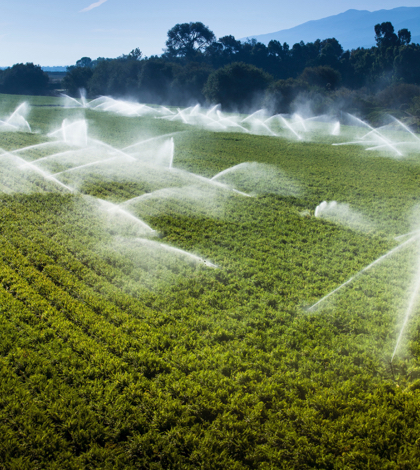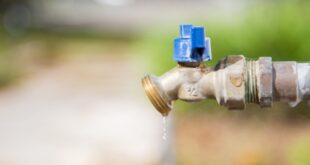Questions have arisen regrading a 30-year practice of using wastewater from oil and gas field operations to irrigate food crops in California – primarily in Kern County. Though the Central Valley Regional Water Quality Board (CVRWQB) has said that no studies to date have shown oil wastewater-irrigated crops pose any threat, the Environmental Working Group (EWG) claims otherwise.
EWG – an environmental organization that specializes in research and advocacy in the areas of toxic chemicals, agricultural subsidies, public lands, and corporate accountability – has identified nearly 100,000 acres of farmland in parts of California’s Central Valley that have been irrigated with oil wastewater’s toxic chemicals, including chemicals that can cause reproductive harm and cancer.
Two days before a public meeting of a panel of experts was to study the practice’s safety, EWG released its findings. But Carl Rodgers, with the CVRWQB, was quick to respond to the concerns.
“If evidence comes available to the regional board that indicates that there are issues associated with the use of this water, then certainly we will take quick measures to address those concerns and mitigate any impacts,” says Rodgers.
Currently four California oil companies are conveying their oil field wastewater to four irrigation districts. The water is treated, recycled and then used for a variety of crops grown in Kern and Tulare counties: almonds, pistachios and a variety of citrus along with beans, carrots, grapes, potatoes and tomatoes.
“Although it is well-established that pollutants in water and soil can build up in crops — especially root crops such as carrots and potatoes, which are grown in Kern County with oil field wastewater — scientists don’t know if that poses a health risk for people who eat the food,” says the report, written by EWG senior scientist Tasha Stoiber. “A healthy diet high in fruits and vegetables outweighs uncertainties about chemicals in produce.”
Thus far the water board has declined to stop the practice of using oil field wastewater to grow crops in spite of the fact that scientists don’t know whether it poses a health risk to individuals who consume the food. However, the water board has said it will consider ceasing the oilfield wastewater technique if it’s found to be a public health threat and not in the public’s best interest.
EWG’s Bill Allayaud directly expressed his concerns saying, “”The overlap of fracking chemicals and the chemicals used in conventional drilling is troubling. The water board should have thoroughly studied and assessed this practice before allowing it. But even as it plays catch-up, it is contemplating additional proposals to expand the practice. Until the safety of the public and the environment can be assured, this is irresponsible.” Allayaud is EWG’s California director of government affairs.
 California Water News Daily Your Source For Water News in California
California Water News Daily Your Source For Water News in California


